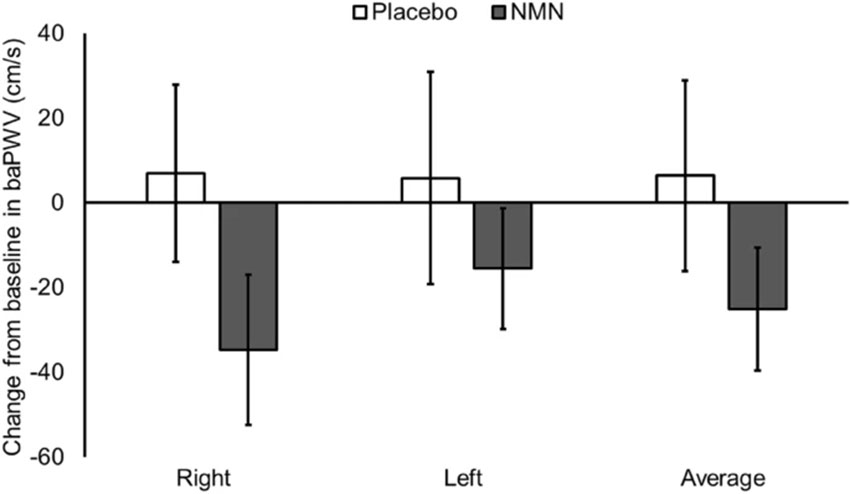A new human trial using 36 healthy middle-aged participants was recently published showing positive efficacy for NMN. In this 12-week, randomized, double-blind, placebo-controlled, parallel-group clinical trial, it was shown that just 125mg of NMN twice per day reduced blood vessel stiffness and significantly decreased diastolic blood pressure in participants with elevated glucose levels. (1)
NAD+ levels decrease with age
Since NAD+ levels decrease with age, and NAD+ metabolism deterioration exacerbates several age-related diseases, maintaining NAD+ levels is essential to preventing and treating the “diseases of old age”. An enzyme called NAMPT, responsible for converting used NAD+, called nicotinamide in the salvage pathway also decreases with age.
“Systemic NAD+ levels and nicotinamide phosphoribosyltransferase (NAMPT) activity, which serves the rate-limiting enzymatic step that converts NAM to NMN in the salvage pathway, have been found to decrease with age in various tissues.” (1)
“Because NMN is a downstream product of the NAMPT reaction, NMN supplementation is assumed to increase NAD+ biosynthesis in a way that avoids the need for NAMPT.” (1)
NMN supplementation improves vascular health
In the study, NMN significantly decreased systemic arterial stiffness (baPWV) in adults, suggesting that NMN supplementation potentially improves vascular health in middle-aged adults, especially in those with high BMI or blood glucose levels.

NMN decreased diastolic blood pressure in participants with elevated glucose levels
Another finding from this study was that NMN supplementation decreased diastolic blood pressure in participants with elevated glucose levels, echoing findings from a another recent human trial conducted by Metro Biotech using their patented version of NMN called MIB-626. (2)
“NMN intervention significantly decreased diastolic blood pressure in participants with higher-than-mean blood glucose levels” (1)
Although the study can be faulted for its use of low doses of NMN, inadequate sampling methods, and inappropriate recruitment of participants, it was the first to show decreased levels of baPWV, a marker of reduced arterial stiffness, suggesting further studies may be warranted to strengthen the findings of reduced arterial stiffness.
References:
